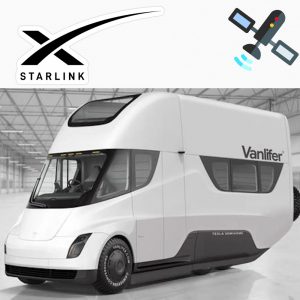Vodafone Surpasses Telstra and Optus, Launches Australia’s First NB-IoT Network
Vodafone has taken the lead over its rivals, Telstra and Optus, by launching Australia’s pioneering Narrowband-Internet of Things (NB-IoT) network. Currently operational in North Sydney, Port Melbourne, and Frankston, the network is set to expand to other areas of Melbourne, Sydney, and Canberra by the year’s end. The NB-IoT network enables seamless, large-scale connectivity between devices without the need for human intervention, attracting significant interest from councils across the country. Local governments view this innovative solution as a means to enhance citizens’ lives, while businesses are embracing it for improved operational efficiency. Let’s delve into why NB-IoT is causing a stir in the technical sector.
Introducing Vodafone’s NB-IoT: While there are currently 6.5 billion devices connected to the Internet, this number constitutes only 1% of the potential interconnected devices that could form the foundation of future smart networks. As communication shifts from human-machine interactions to machine-to-machine interactions, more devices require Internet connectivity to realize their full potential. Devices such as smart meters and sensors need the Internet to transmit collected data to their central computers. However, due to remoteness, inaccessibility, or sheer quantity, many of these devices face challenges in achieving economically viable connectivity.
Vodafone’s NB-IoT addresses this machine-to-machine communication barrier. It utilizes Low Power Wide Area (LPWA) Technology to facilitate efficient communication and long battery life for mass-distributed devices over large geographical areas, including deep within urban infrastructures. The key features of this network include:
- Strong Coverage: Outperforming 2G, 3G, and 4G networks, NB-IoT can penetrate three double brick walls in depth and extend up to 30 km in distance. This enables devices deep underground or within buildings to maintain Internet connectivity.
- Power Efficiency: Unlike cellular networks that quickly drain device batteries, NB-IoT operates with minimal power consumption, allowing devices to remain connected for up to ten years or longer without the need for frequent battery recharging.
- Massive Scale: Millions of devices can be connected simultaneously through a single deployment, streamlining the process of launching smart networks with the touch of a button, rather than manually configuring each device.
The immense potential of NB-IoT offers new data streams, cost reduction opportunities, and the creation of novel business models.
Applications of NB-IoT in Australia: Businesses in Australia can leverage NB-IoT for various applications, including:
- Smart Grid Solutions: Implementing a Smart Grid grants utilities the ability to remotely manage and monitor data, automation, and control, as well as efficient and secure transmission and distribution management. It also enables the integration of low-carbon technologies like electric vehicles and smart homes.
- Smart Metering Solutions: NB-IoT enables two-way communication between smart meters and central systems, allowing new and innovative ways to engage with consumers, such as providing accurate energy bills, reducing billing inquiries, and offering pre-paid energy services.
- Smart Home Solutions: NB-IoT facilitates connectivity between smart home devices, enabling features like optimized appliance power management and automated response to emergencies, such as activating sprinklers during fire incidents.
- eMobility Solutions: NB-IoT ensures reliable communication services for eMobility, supporting electric vehicle charging and monitoring, thus contributing to sustainable transportation.
NB-IoT Deployment: Vodafone trialed NB-IoT in various markets through collaborative NB-IoT labs with Huawei. Successful trials were conducted in Spain, Turkey, and the United Kingdom, with diverse applications ranging from water meter reading and smart meters to smart city initiatives.
Within Australia, Vodafone partnered with Victorian water utility, South East Water (SEW), to conduct field trials in July. The pilot trial connected 10,000 devices, with a goal of eventually connecting 1 million devices, including 800,000 meters and 200,000 detectors for applications like sewer monitoring and fire hydrants.
Competing Technologies in Australia: Though Vodafone was the first to launch the NB-IoT network, Optus and Telstra have been actively trialing their own Low Power Wide Area (LPWA) networks in different regions of the country, with potential launches on the horizon.
Why Choose Vodafone’s NB-IoT? Vodafone’s offering boasts several advantages for businesses eager to embrace this emerging technology:
- Proven Solution: Vodafone’s global success with businesses and utilities provides confidence for investing in this cutting-edge technology.
- Reduced Installation Time: Vodafone’s in-house Managed IoT Connectivity Platform streamlines deployment complexities and costs through automated provisioning and billing, potentially leading to significant savings.
- Interference-Free Network: Operating NB-IoT in licensed spectrum ensures quality of service and eliminates the risk of signal disruption from other users on the same frequencies.
- Reliable Two-Way Communication: Vodafone’s sufficient bandwidth allows for secure data collection and remote management, enhancing the connection’s reliability.
- Quick Upgrades: Utilizing existing network infrastructure enables rapid upgrades through software implementations, avoiding the need for additional physical infrastructure.
- Future-Proof Technology: Vodafone’s NB-IoT is based on open standards, minimizing the risk of obsolescence and avoiding vendor or operator lock-ins.
- Industry-Wide Support: Vodafone’s NB-IoT is supported by a wide range of service providers, equipment manufacturers, and chipset makers, ensuring long-term support and investment in the technology.
- Commercialization and Innovation Support: Vodafone offers clients the support needed to bring their products to market and access to NB-IoT labs for testing and prototyping.
With Vodafone’s NB-IoT network up and running, businesses in Australia have a compelling option to explore the potential of this transformative technology. As other networks approach launch, the competition is likely to drive even greater benefits for businesses across the country.




